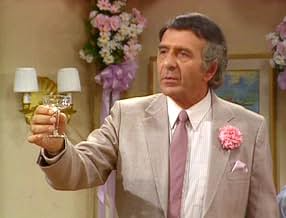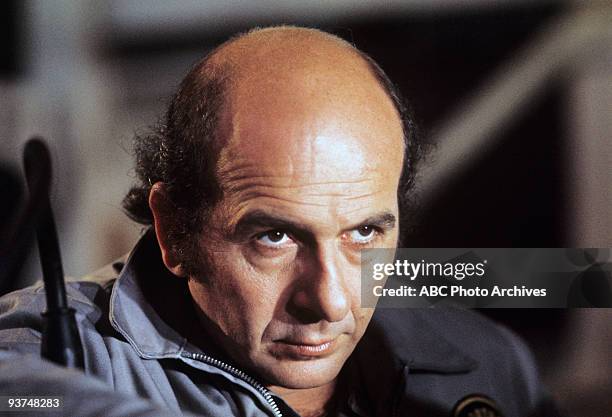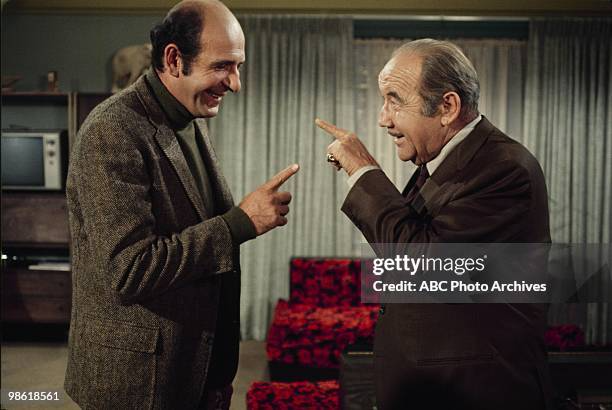
Few actors have managed to strike the perfect balance between comedy and sincerity quite like Herb Edelman. Best known for his unforgettable role as Stanley Zbornak, Dorothy’s ex-husband on the beloved sitcom The Golden Girls, Edelman charmed audiences with his impeccable timing and relatability. While his portrayal of Stanley remains a highlight of his career, the years following his time on the series were filled with remarkable work across television, film, and stage. Though he passed away in 1996, Herb Edelman left behind a legacy that continues to resonate with fans and performers alike.
Contents
Herb Edelman — The Man Behind the Laughter

Born on November 5, 1933, in Brooklyn, New York, Herb Edelman had an unorthodox path into show business. Originally studying to become a veterinarian, he later shifted to acting, training at Brooklyn College and the Yale School of Drama. His breakout role came in the Broadway production and subsequent 1968 film adaptation of The Odd Couple, where he played the affable and earnest Murray the Cop.
Decades later, his role as Stanley Zbornak on The Golden Girls (1985–1992) would cement him as a fan-favorite character actor. His portrayal of Dorothy’s ne’er-do-well ex-husband added both comic relief and emotional complexity to the hit series. Though he appeared in only 26 of the show’s 180 episodes, Edelman’s presence was significant. He brought humor, frustration, and occasional warmth to the role—making Stanley Zbornak one of the most memorable recurring characters in sitcom history.
But while The Golden Girls is often seen as the crown jewel of Edelman’s career, his work after the series showcased the full breadth of his talent.
A Steady Force on Television

After his final appearance on The Golden Girls in 1992, Herb Edelman continued to make a lasting impact on television. In fact, he had already begun playing another iconic role by that time—Lt. Artie Gelber on Murder, She Wrote. From 1984 to 1995, Edelman appeared in over 40 episodes of the long-running mystery series, portraying a street-smart, no-nonsense New York detective opposite Angela Lansbury’s Jessica Fletcher.
This role showed audiences a different side of Edelman. Gone was the bumbling Stanley; in his place stood a confident, seasoned officer who brought credibility and warmth to his scenes. It was perhaps the most extensive recurring role of Edelman’s career, and it remains one of his most respected performances.
In addition to Murder, She Wrote, Edelman appeared in numerous other television shows throughout the 1990s, including:
- St. Elsewhere
- Diagnosis: Murder
- Empty Nest
- MacGyver
Herb Edelman continued to portray characters who were grounded, sincere, and unmistakably human. Even in smaller guest roles, Edelman had the ability to light up the screen, often becoming one of the most memorable aspects of any episode.
Film Roles and a Nod to the Past
Though television remained his primary platform, Edelman also made a handful of film appearances after his success on The Golden Girls. Among them was a poignant return to the character of Murray the Cop in The Odd Couple II, released in 1998—two years after his death. Though the role was small, it was a heartfelt callback to one of his earliest successes, and a fitting tribute to a career that had come full circle.
In addition, Edelman appeared in a range of films during his later years, including:
- Crimes and Misdemeanors (1989), directed by Woody Allen
- Down and Out in Beverly Hills (1986)
- The Way We Were (1973), alongside Barbra Streisand and Robert Redford
These roles, though often supporting in nature, reflected Edelman’s ability to bring nuance and authenticity to any scene. He was the kind of actor who made everything better simply by being in the frame.
A Return to the Stage and Mentorship

In the final years of his life, Herb Edelman returned to the stage, participating in various regional and off-Broadway productions. For Edelman, theater was not only a return to his roots but also a way to remain connected to the foundational elements of acting. He believed deeply in the value of live performance and often encouraged younger actors to pursue stage work as essential training.
Beyond his work as an actor, Edelman became a trusted mentor and collaborator. He worked as a script consultant on several sitcom pilots and occasionally coached performers in comedic timing and character development. His colleagues described him as humble, generous, and insightful—always willing to help others improve their craft.
Personal Life and Final Years
Though Edelman’s characters were often quirky or over-the-top, he was known in real life as a thoughtful and grounded individual. He was previously married to actress Louise Sorel, and while their marriage ended in divorce, the two remained on respectful terms. Edelman preferred to keep his personal life private, avoiding Hollywood’s flash in favor of a quieter, more introspective lifestyle.
Unfortunately, in the early 1990s, Edelman was diagnosed with emphysema—a condition caused in part by years of smoking. Despite his declining health, he continued working for as long as he could, appearing in television roles and on stage even during the later stages of his illness.
Herb Edelman passed away on July 21, 1996, at the age of 62, in Los Angeles, California. His death was mourned by fans and colleagues alike, with tributes pouring in from across the entertainment industry. Angela Lansbury, Bea Arthur, and other co-stars remembered him not only as a consummate performer but as a warm and kind-hearted man.
A Lasting Legacy

Herb Edelman’s career may not have included blockbuster stardom or leading-man fame, but that was never his goal. He was a character actor in the truest sense—devoted to his roles, his craft, and the people he worked with. Herb Edelman characters were always multidimensional, filled with charm, flaws, and authenticity.
Even decades after his passing, Edelman’s performances continue to be discovered by new generations. Whether through reruns of The Golden Girls or Murder, She Wrote, or in his earlier films and theater work, Edelman’s influence lives on.
In a 2017 Television Academy retrospective, he was remembered as “one of television’s great supporting actors—always there, always believable, and always unforgettable.” Fans still laugh at Stanley’s antics, admire Lt. Gelber’s quiet strength, and cherish the warmth Edelman brought to every project.
Conclusion
Herb Edelman may be gone, but his work endures as a masterclass in subtle, heartfelt performance. He brought depth to roles that could have easily been one-dimensional, and he made audiences feel seen, understood, and entertained.
Today, Herb Edelman is remembered not only as Stanley Zbornak or Murray the Cop, but as an actor who loved the craft and who gave each performance his all. In that sense, his career didn’t end with The Golden Girls—it expanded from it, rippling outward in ways that continue to touch viewers, decades later.
See more at KpopAll and fanpage Golden Girls, Golden Girls.

Leave a Reply